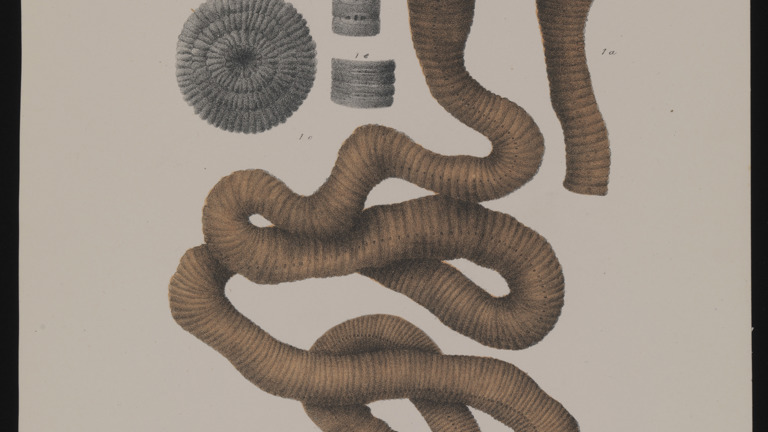
Biologist
In an era of increasing scientific specialisation, Frederick McCoy adhered to the ideals of the newly-defined science of 'biology' as the study of all life forms. He gave attention to 'all classes of animals', describing those from both marine and terrestrial environments. A formidable knowledge of Australia's fossil record also informed his understanding of the living animals he encountered.
McCoy's great achievement was the publication of his Prodromus of the Zoology of Victoria. On 12 January 1885 he set out his aims in the preface to Volume One of the Prodromus:
As the Fauna is not so well known as the Flora, it was a necessary preliminary to the publication to have a large number of drawings made, as opportunity arose, from the living or fresh examples of many species of reptiles, fish, and the lower animals, which lose their natural appearance shortly after death, and the true characters of many of which were consequently as yet unknown, as they had only been described from preserved specimens.
A Prodromus, or preliminary issue, in the form of Decades, or numbers of ten plates, each with its complete descriptive letterpress, will be published, of such illustrations that are ready, without systematic order or waiting for the completion of any one branch.
A dedicated and often insightful taxonomist, many of McCoy's classifications and descriptions remain a valuable foundation for modern biology, however a number of his theoretical insights have travelled less successfully. A tenacious Creationist, he was unwilling to embrace Natural Selection.
As an example, his observation of the continuity over geological time of the genera of bivalve molluscs, Trigonia, led him to consider the succession of life-forms from ancient fossil through to living animals. Despite this, he was unwilling to accommodate Darwin's theories, even decades after the 1859 publication of On the Origin of the Species by the means of Natural Selection.

